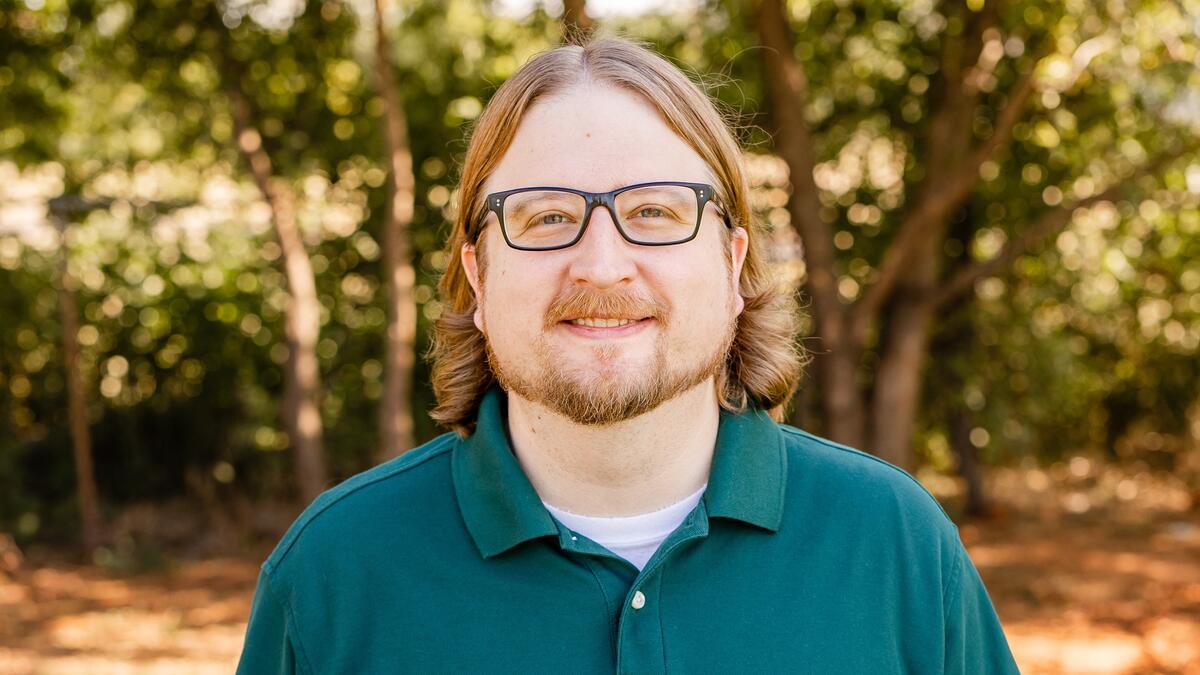Online history graduate student reflects on his student experience as a digital archivist

Clinton Roberts is graduating with his master's degree in history from the School of Historical, Philosophical and Religious Studies.
Editor's note: This story is part of a series of profiles of notable fall 2021 graduates.
Clinton Roberts wanted to earn his master’s degree in history for the last 20 years, but life kept interrupting his plans. That was until one day in 2019 when he came across an advertisement for Arizona State University Online.
“I am so glad I reached out to ASU and applied,” Roberts said. “Going back to get my master’s has been one of the most rewarding experiences of my life.”
As a student, Roberts became an intern for A Journal of the Plague Year: An Archive of COVID-19, a digital archive created by history faculty at ASU’s School of Historical, Philosophical and Religious Studies. He created the "Rural Voices" collection for the archive to look at the effect of COVID-19 on rural communities.
His internship turned into a position as a digital archivist for six months and while employed, he coordinated the curation of oral histories.
“My time at (the Journal of a Plague Year) became an integral part of my graduate school experience,” said Roberts.
Roberts will graduate with his master’s degree in history from the School of Historical, Philosophical and Religious Studies this semester.
Question: What was your “aha” moment when you realized you wanted to study the field you majored in?
Answer: I was lucky to find my major reasonably early in my college career. But I think my "aha" moment came during my undergraduate (time) at Oklahoma State University. That’s where I met my first mentor, Dr. Neil Hackett. I wish I had a recording of all his lectures. He taught history like an unraveling tale. In those moments, I went from being a mere history student to loving the discipline. I owe a lot of my success to his guidance.
Q: What’s something you learned while at ASU — in the classroom or otherwise — that surprised you or changed your perspective?
A: One of the most important things I learned while at ASU was transitioning my historical knowledge into a career. I have had great experiences with the faculty at ASU. If it was not for their guidance, then I would not have had a chance to publish my academic article, “‘Rural Voices’ Pandemic Collection Shares Quiet Stories of Loss and Hope During COVID-19,” on (the school's) blog. I also would not have had the ability to join a top international COVID-19 archive like (the Journal of a Plague Year). I will always be grateful for the opportunities ASU has given me.
Q: Why did you choose ASU?
A: I chose ASU after examining some of the other graduate programs that were being suggested to me. I looked at the programs and ASU was definitely the best fit for me. I wanted an online program, but with on-campus staff. In addition, ASU’s online history program was consistently rated among the best. It was an easy choice and I decided to become a Sun Devil.
Q: Which professor taught you the most important lesson while at ASU?
A: While at ASU, Dr. Kole de Peralta taught me the most about transitioning my academics to reach the next level. Without her help, I would have never been able to become an archivist or had my academic article published.
Q: What’s the best piece of advice you’d give to those still in school?
A: My best piece of advice to those still in school is to use your time wisely. There is a lot of work in the master’s program and time management is an essential aspect of success at this level.
Q: What was your favorite spot for power studying?
A: My favorite spot for power studying was definitely my desk at home. The year 2020 was a challenging year for many of us and finding comfort in my own home became essential to keeping my education in focus.
Q: What are your plans after graduation?
A: I began my teaching career over the summer and I suspect for now that will continue. I hope to pursue my PhD one day, but teaching secondary education has my immediate attention covered.
Q: If someone gave you $40 million to solve one problem on our planet, what would you tackle?
A: That is such a difficult question. It would be hard to make a global change on any particular issue with $40 million. But I do believe you can make tremendous changes to people’s lives. I would create a scholarship and help underprivileged students go to college. An investment of $40 million could help produce the next doctor that saves lives or the next scientist that solves a worldwide crisis. If we invested $40 million in our future and improved all those lives? That would be such a small investment for all of the good it could achieve.
More Arts, humanities and education

School of Social Transformation faculty member assumes new title with NSF
School of Social Transformation faculty member and Founding Executive Director of the Center for Gender Equity in Science…

ASU's Neal Lester reflects on life, death of poet Nikki Giovanni
When Neal Lester heard on Monday that poet and activist Nikki Giovanni had died, the news hit hard.Lester, the founding director…

Learning by stepping outside
By Adriana MaestasAmid a world increasingly captivated by all things digital, more than 200 Arizona teachers have crafted…